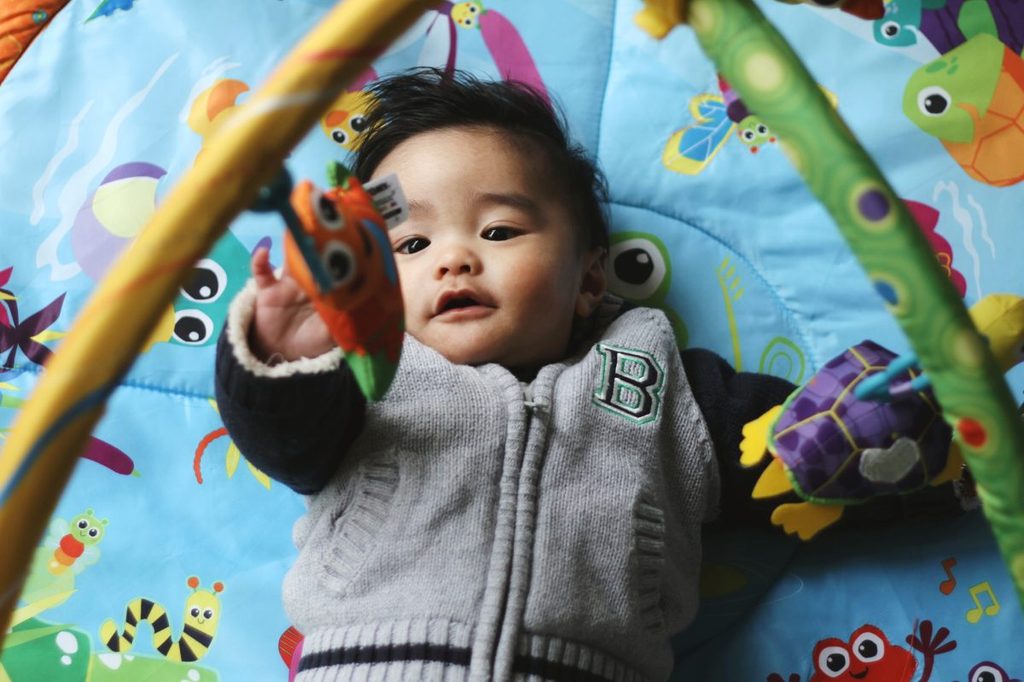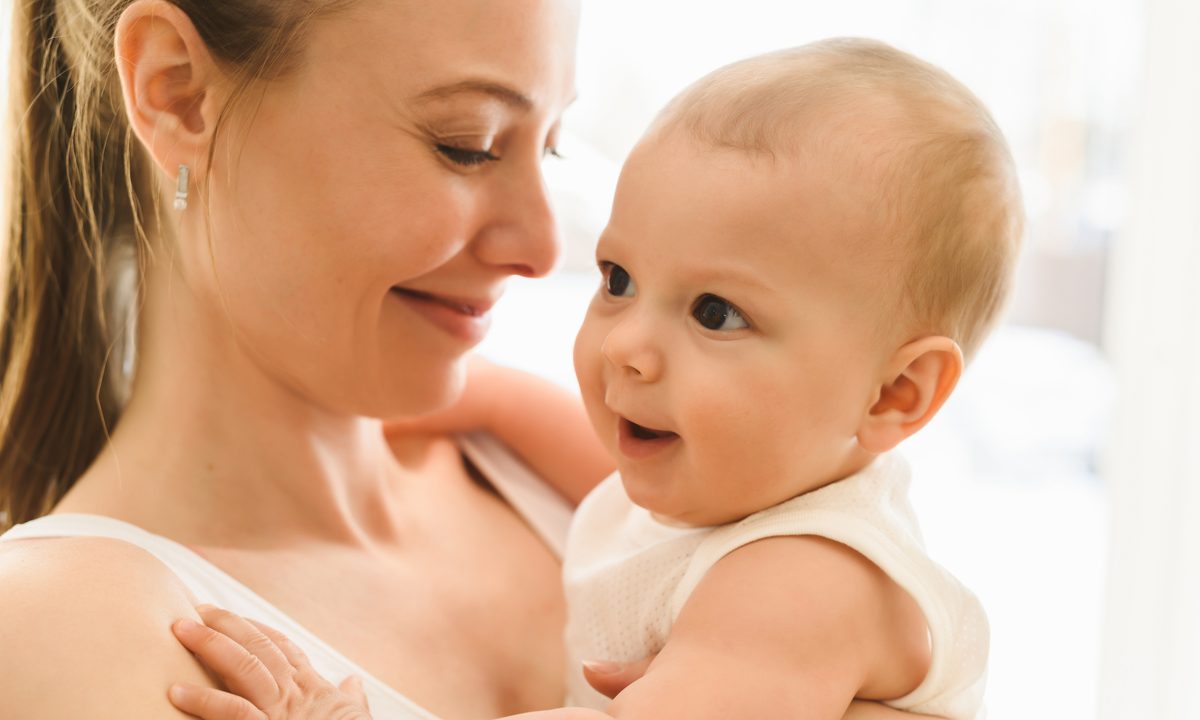When you have a new baby, each milestone is precious, with the first year feeling like your little one hits a marker every other day. The first few weeks sort of blend together, the first months you’re trying to remember to shower, but by month four, you and baby start to find your groove. As you and your new little one continue to get to know each other, these are the 4-month-old milestones to celebrate with your family.
Growth milestones

You may be too sleep-deprived to notice, but your child is going through big growth milestones. They physically look so different from when you brought them home, with four months being when things take a turn in their appearance.
Big weight gains
It might seem like your baby was just born, but you have been getting to know each other for a few months. Take a look at your baby from when you brought them home to now at four months. Your baby will go from looking like a squishy blob to a face with a personality due to a growth spurt at this time.
Believe it or not, your baby may have doubled their birth weight already. That’s an arm workout you can be proud of.
Solid food time
Most parents look forward to introducing their little one to solid foods at four months. Run it by the pediatrician first to check that your baby has hit important markers for readiness. Though they won’t go entirely to solids for a few more months, starting solids is exciting for you and baby.
Your infant should still have a diet of mostly formula or breastmilk at 4 months old. Even if you introduce solids, they only take a few tablespoons a day, so healthy bottles are the majority of their intake.
Physical milestones at 4 months old

It’s almost time to babyproof the house. Babies start to realize they can move and groove around 4 months old.
On the move
Your little one might be rolling over by 4 months old, which is both a cool trick and a whole new parenting level. New sleep procedures and checking baby is where they were 30 seconds ago enter the routine. Your child might start scooting by this time or be able to put their weight on those adorable legs when you hold them up. Crawling is right around the corner.
Grabbing for everything
Your baby will have great eye control by 4 months of age. By now, they love colors, shapes, and everything in their line of vision. If you have long hair, now is when the constant bun or braid makes a permanent appearance. Your baby will grab at any and everything in sight. But this also makes playtime way more engaging and entertaining for you both.
The babble gets better
Oh, how cute is baby babble? You can start to have mini conversations where they respond with more sounds. The babble becomes defined, with the introduction of vowels and consonants together. To encourage those first words, talk to your baby about everything as much as possible.
The sleep cycle changes

Sleep is always a big concern when you have a baby. There will be some ups and downs at four months.
Nap time is important
At 4 months old, naps are still a big part of life. Babies sleep up to 12 hours a day, with around 5 hours of it in nap form. Your baby should go down for at least two naps but might need a third on rough days.
Sleep regression
Not all milestones are adorably sweet. The 4-month-old sleep regression is real and can be devastating for morale around the house. Please know it’s a phase coinciding with a growth spurt babies have then, and it will pass. Stick to your bedtime routine, and the sleep regression will go away.
Sleep routine
Speaking of sleep, if your baby is rolling over and you are a swaddling household, it’s time to free the babe. Your baby needs their arms out to keep themselves safe during the night if they flip while they sleep.
When to talk to a doctor

Every baby is different and will hit milestones at various times. If you feel something might be off, or your baby hasn’t hit a chunk of normal markers, go ahead and make an appointment or bring it up at your child’s well visit.
Check for these signs
- Isn’t holding their head up yet.
- Doesn’t follow objects or people.
- Hasn’t gained at least 50% of their birth weight.
- Doesn’t smile or respond to the faces of people they should know (parents, siblings).
Those 4-month-old milestones are a lot to take in. There’s so much change in a few months, and it could be hard to enjoy when you’re in the thick of it. This is the last bit of time before you have a nonstop talking, constantly moving little human to care for, so try to slow down and see if your baby has moved toward any of these markers.



